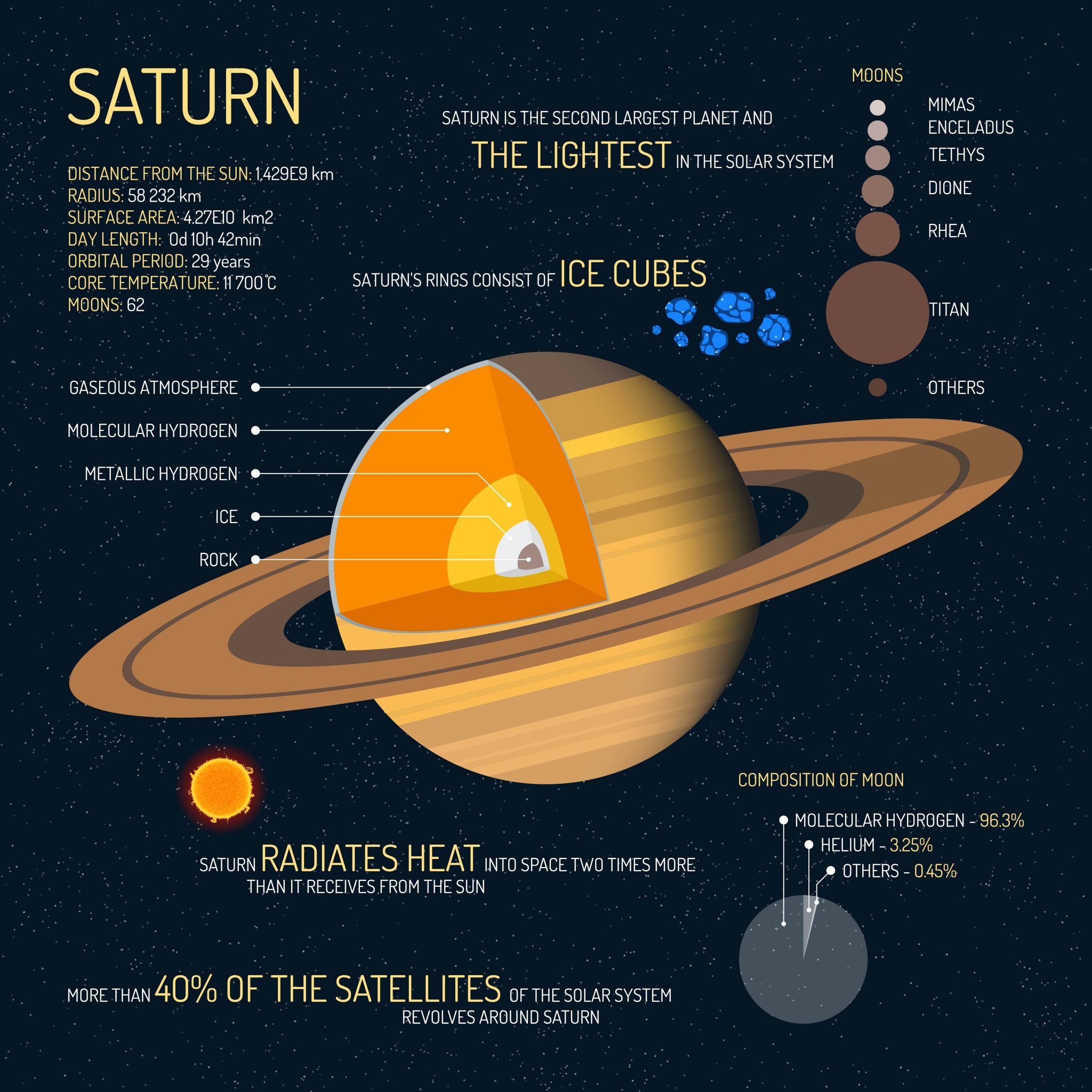
7 Saturn Facts Beyond its Signature Rings [Infographic] Earth How
By this measure, Saturn's equatorial diameter is 120,536 km (74,898 miles). In comparison, its polar diameter is only 108,728 km (67,560 miles), or 10 percent smaller, which makes Saturn the most oblate (flattened at the poles) of all the planets in the solar system. Its oblate shape is apparent even in a small telescope.

Saturn in natural colours ESA/Hubble
Jan. 4, 2024. Think of Uranus and Neptune, the solar system's outermost planets, and you may picture two distinct hues: pale turquoise and cobalt blue. But astronomers say that the true colors.
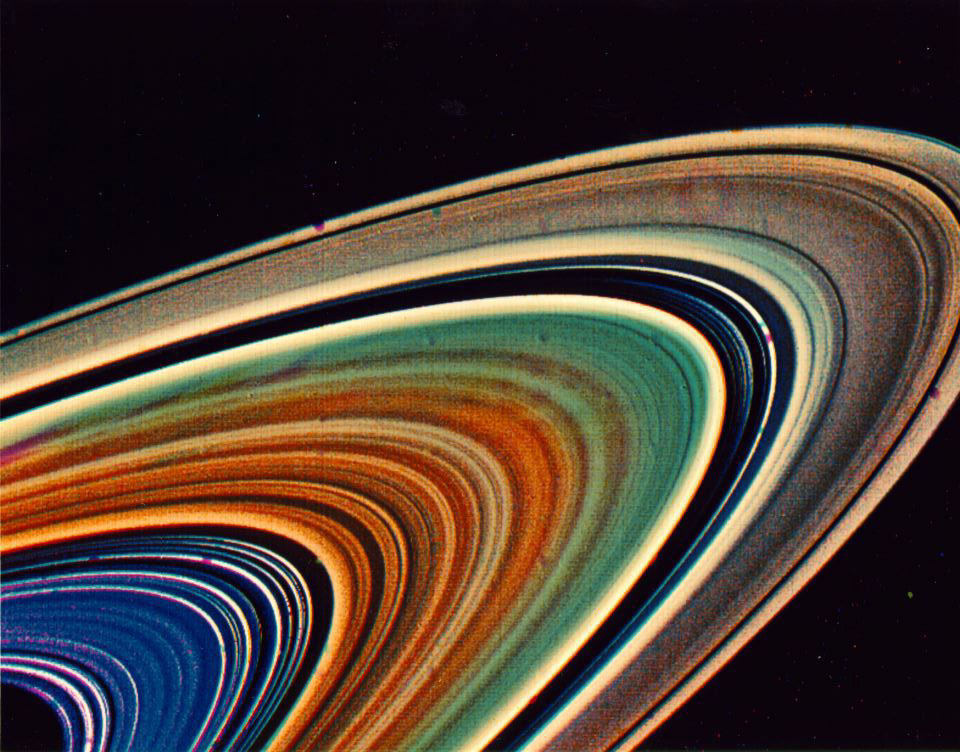
Saturn Pictures Photos, Pics & Images of the Saturn
Saturn is the sixth planet from the Sun and the second largest planet in our solar system. Adorned with a dazzling system of icy rings, Saturn is unique among the planets. It is not the only planet to have rings, but none are as spectacular or as complex as Saturn's. Like fellow gas giant Jupiter, Saturn is a massive ball made mostly of.
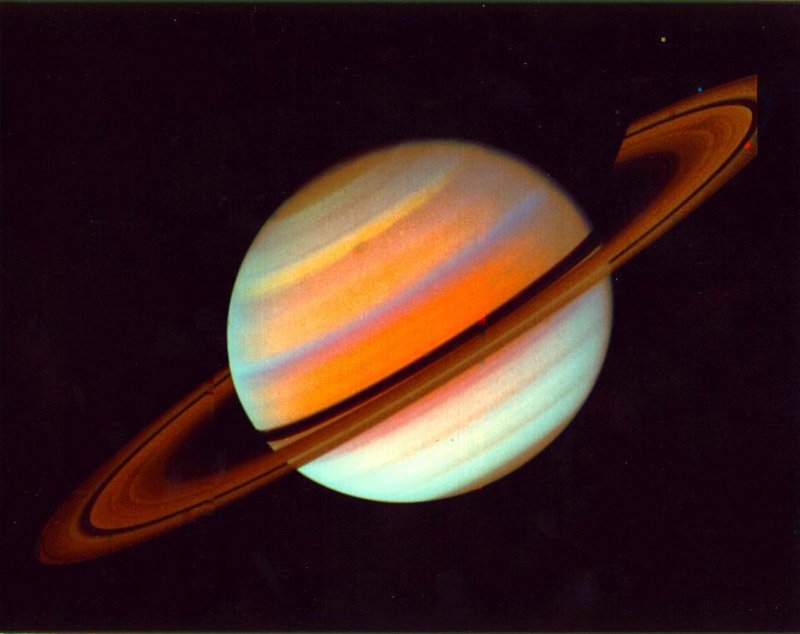
Saturn Pictures Photos, Pics & Images of the Saturn
Saturn's blue colour images were taken by the Cassini probe in 2004 at a distance of about 720 thousand km from the planet. Detailed infrared images of the bands and bright spots of the Cassini clouds using green, red, and blue spectral filters helped to gain advanced knowledge about what colour is the planet Saturn.

True Color Saturn Colorized image of Saturn from Cassini i… Flickr
The Observer Saturn Cassini reveals Saturn's true colours A new view of Saturn, revealed by reprieved space probe, has provided the most accurate depiction of the planet's colour along.
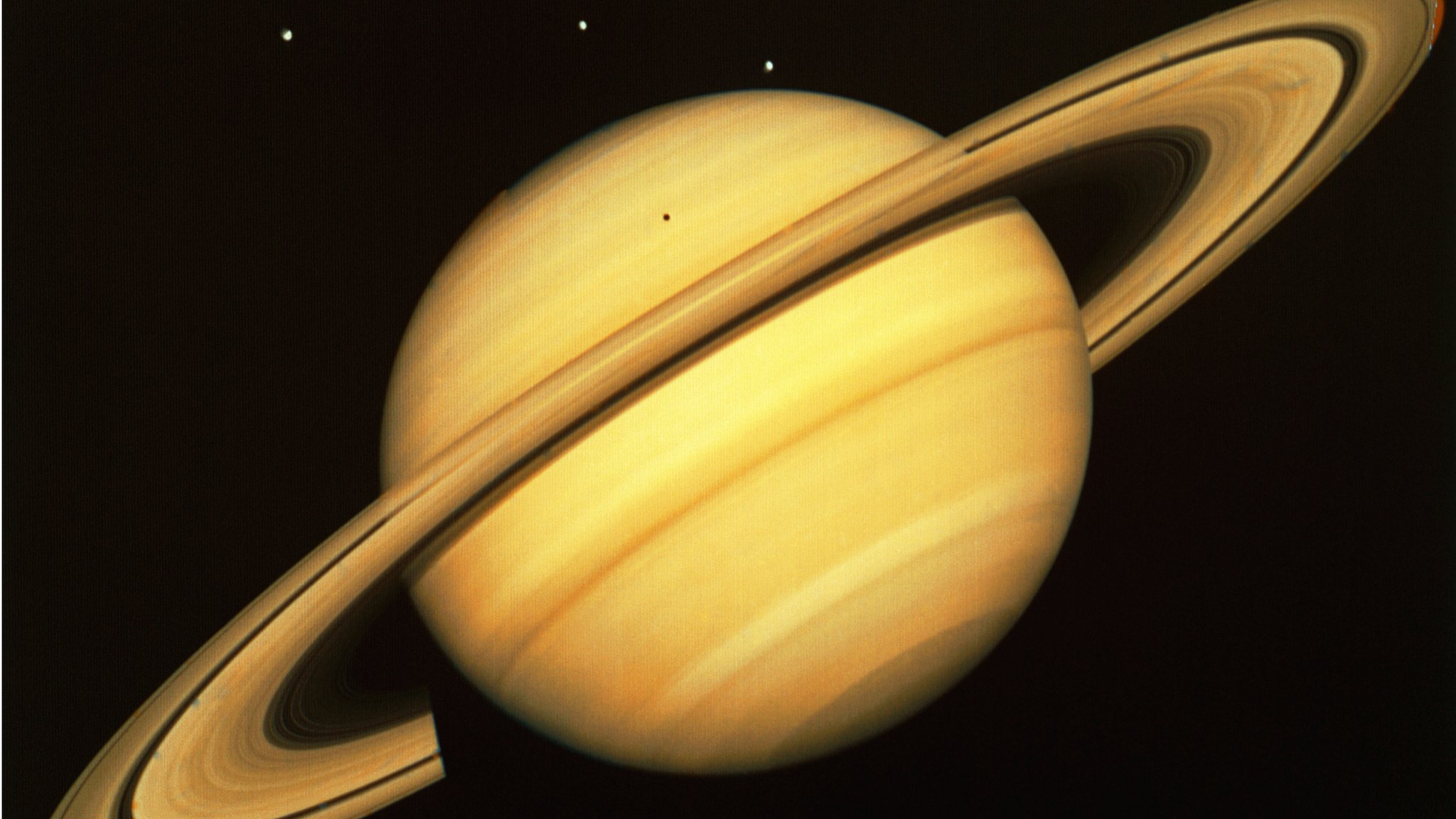
Saturn Five things we've learnt in the last five years CBBC Newsround
What Color is Saturn? Even through a small telescope, Saturn takes on a beautiful pale yellow with hints of orange. With a more powerful telescope, like Hubble, or images captured by NASA's.
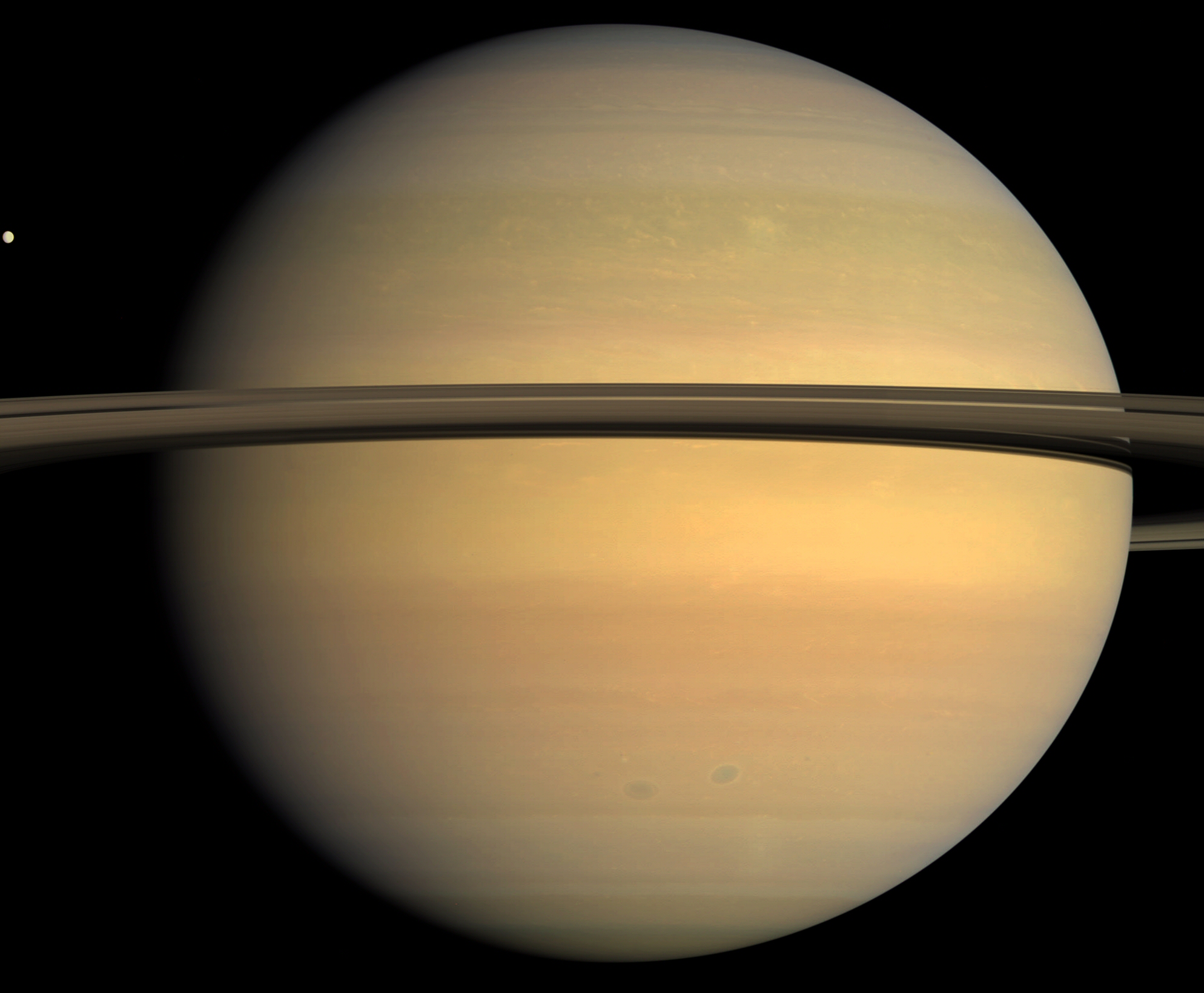
Saturn and Tethys, in color The Society
While that was noted when the first images of the planets were shared, it has since been lost in the excitement. Now, though, you can see Neptune's true colors in a new image from the University.

The Colors of Saturn NASA
NASA Mar 23, 2008 Image Article This delightfully detailed false color image of Saturn is a combination of three images taken in January 1998 by the Hubble Space Telescope and shows the ringed planet in reflected infrared light.
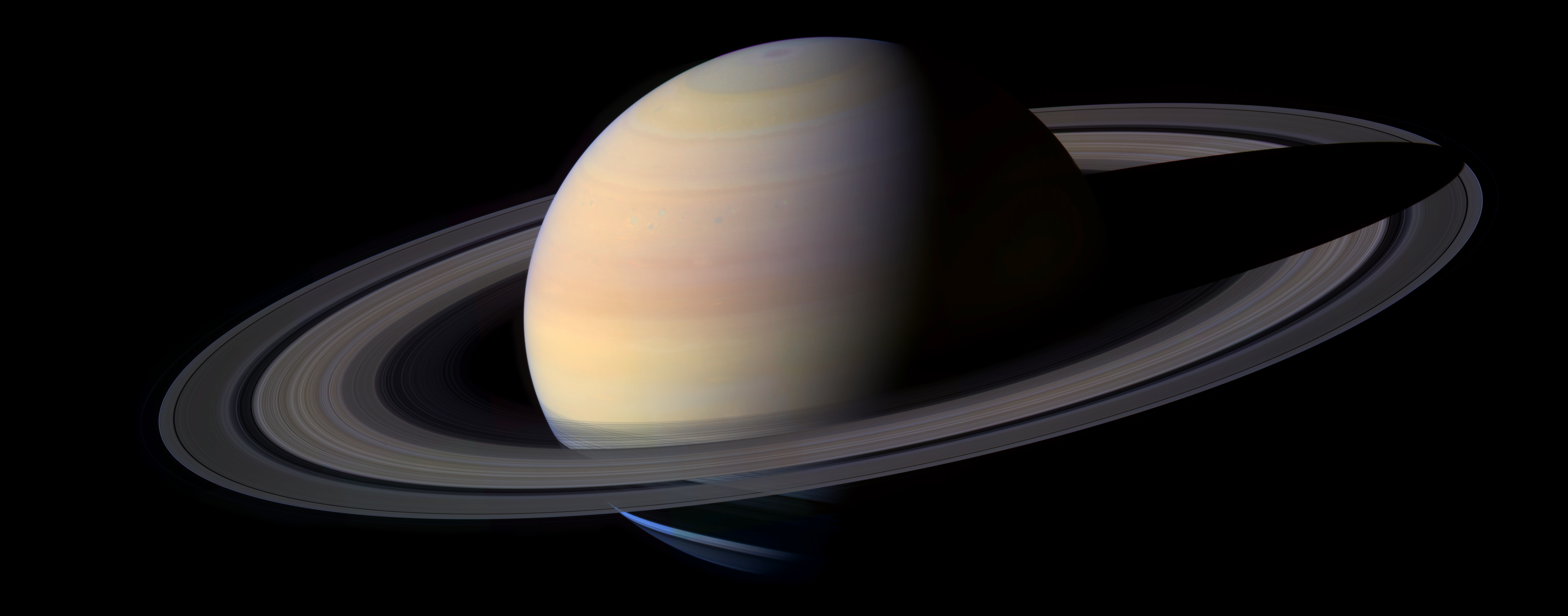
APOD 2004 December 25 Big Beautiful Saturn
When you look at the planets in the Solar system from space, they have these colors: Mercury: Grey Venus: Light yellow and white Earth: Blue, brown, and white Mars: Red, brown, and orange Jupiter: Stripes of light orange, white, brown, and dark orange Saturn: Stripes of yellow and brown Uranus: Light pale blue
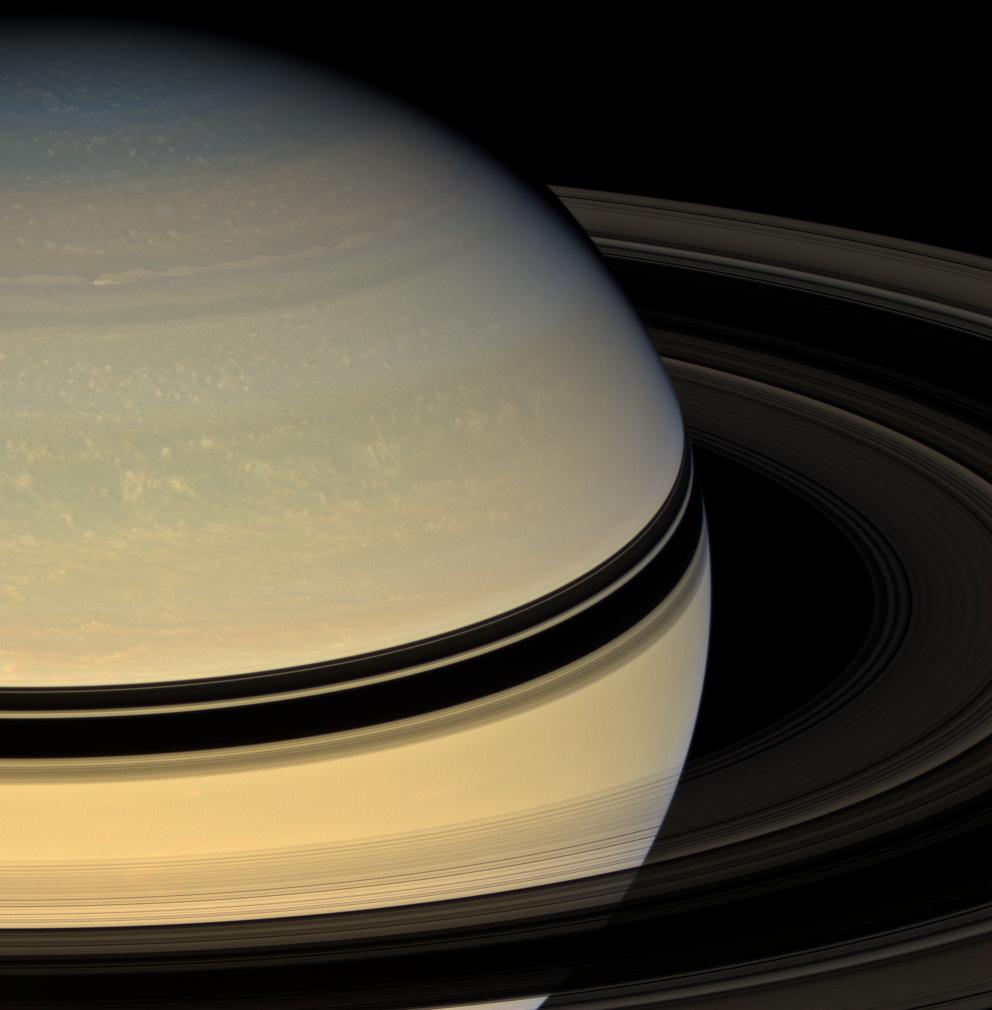
Revealing Saturn's Colors NASA Solar System Exploration
Lost In Time. "Although the familiar Voyager 2 images of Uranus were published in a form closer to 'true' colour, those of Neptune was, in fact, stretched and enhanced, and therefore made.

Colour photograph of the Saturn, taken from Voyager 1. Voyager... News Photo Getty Images
A small ashen world. Mercury has a high iron content and hardly any atmosphere to speak of. When spied through a telescope it looks dark gray and pockmarked. NASA's now retired MESSENGER mission.

New true color image of Saturn taken by Cassini on July 2nd, 2014 space
"Even though the artificially saturated colour was known at the time amongst planetary scientists - and the images were released with captions explaining it - that distinction had become lost over.

Voyager Images Saturn Images Space and astronomy, Saturn
Saturn - Wikipedia Saturn Saturn is the sixth planet from the Sun and the second-largest in the Solar System, after Jupiter. It is a gas giant with an average radius of about nine-and-a-half times that of Earth. [26] [27] It has only one-eighth the average density of Earth, but is over 95 times more massive. [28] [29] [30]
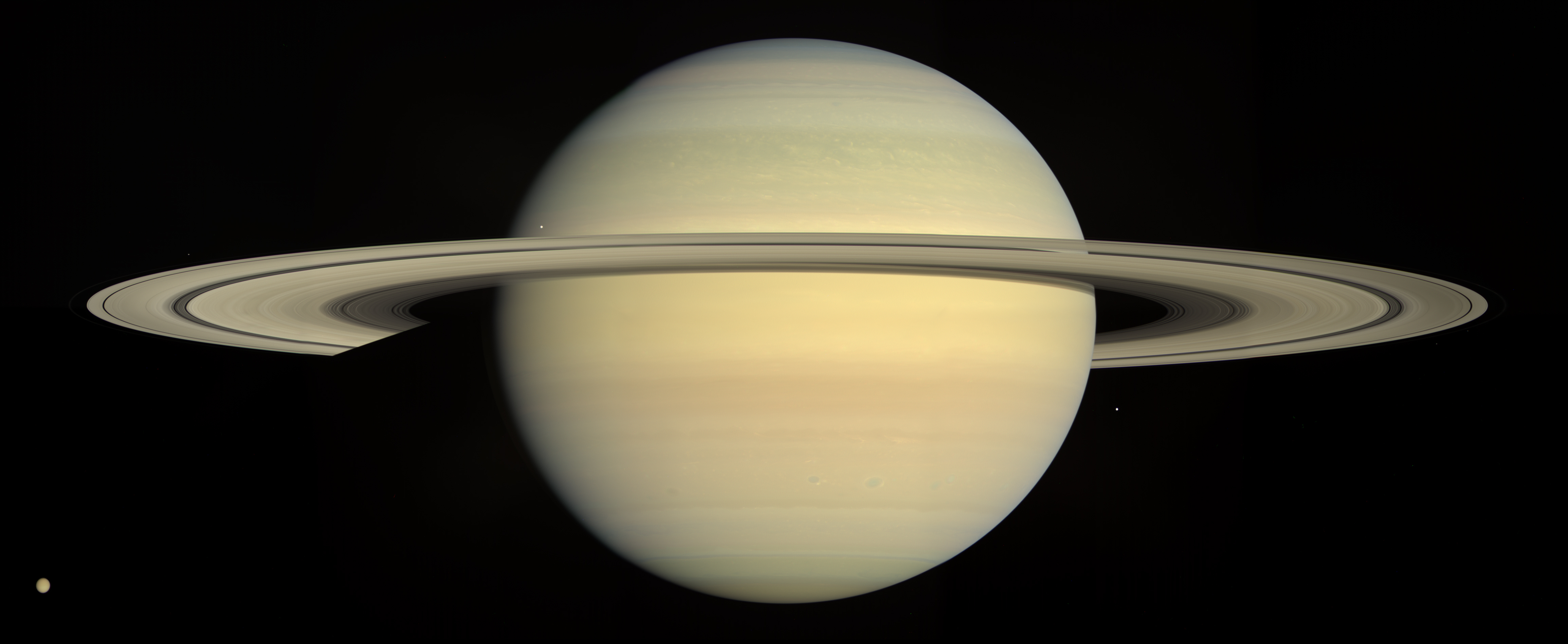
Natural color global view of Saturn and its… The Society
Neptune isn't as blue as people think, and astronomers have figured out why Uranus sometimes appears a tad greener. (Story aired on All Things Considered on Jan. 5, 2024.)
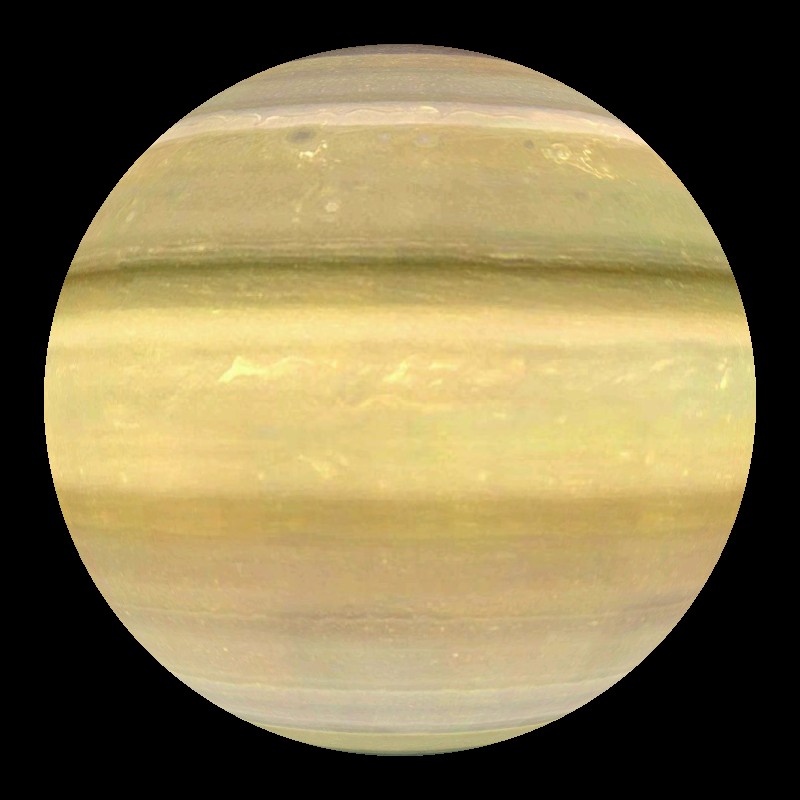
Saturn (enhanced colors) Dataset Science On a Sphere
Jan. 5, 2024 7:44 a.m. In 1989, Voyager 2 became the first and only spacecraft to ever fly by Neptune, and images from that mission famously show a planet that's a deep azure color. But in.

Life on the Saturn Sciencing
Saturn is also a giant gas planet with an outer atmosphere that is mostly hydrogen and helium. Its atmosphere has traces of ammonia, phosphine, water vapor, and hydrocarbons giving it a yellowish-brown color. Cool Cosmos is an IPAC website. Based on Government Sponsored Research NAS7-03001 and NNN12AA01C.